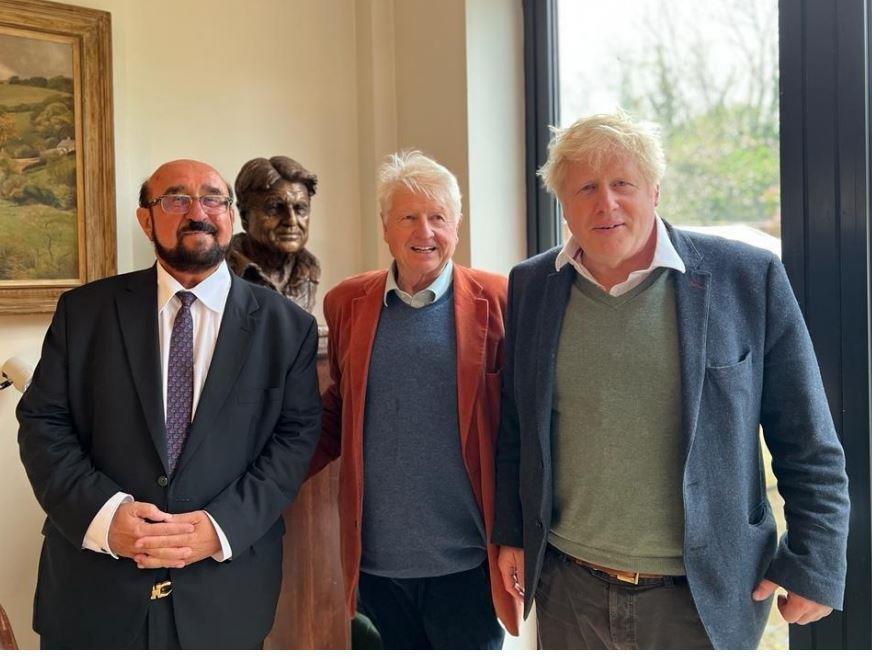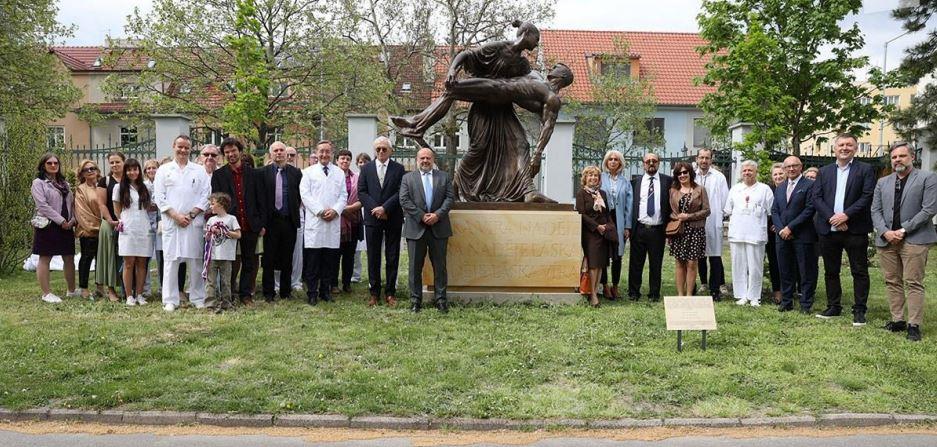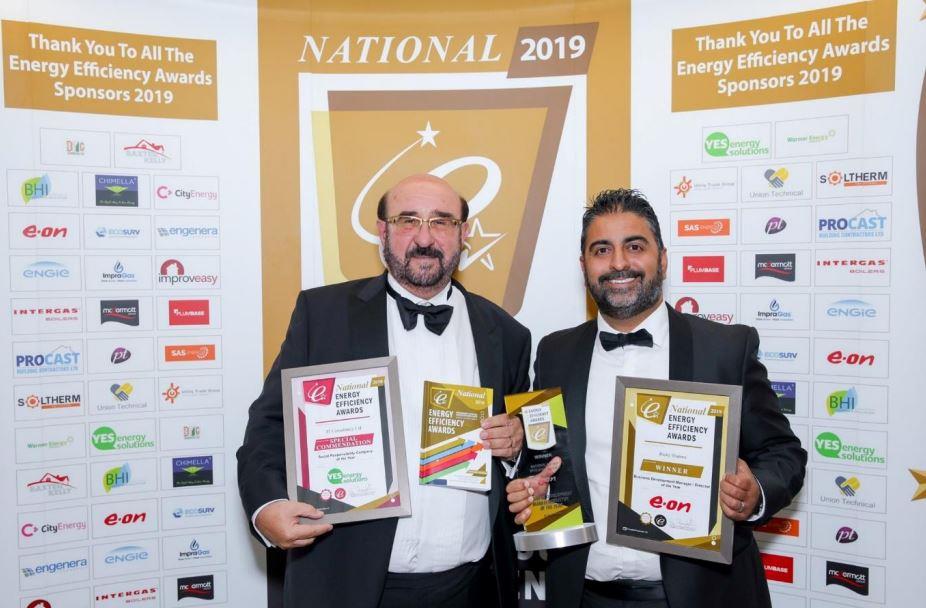In our last interview we learned about your incredible ‘rags to riches’ story and journey to an amazing success. What has happened in the past three years?
Quite a lot. In a nutshell, I’ve perfected the method of virtual reality and as a result of it, I’ve placed tens of thousands of people in jobs in the building industry, so plumbers, electricians, welders, solar panel fitters, and others. I am currently developing a robot with bricklaying skills to be soon tested as part of collaboration with one large company. I see future in such technology as well as Artificial Intelligence (AI) – by using it as a teaching method, I help students learn better – if a student asks a question, I have a system that provides him/her with the most perfect explanation which is easy to understand. In my opinion, future is all about people learning fast and accurately and use skills.
Can you say more about your virtual reality approach?
It’s based on the John Locke’s theory that nothing is in your mind unless it’s acquired through sensory experience first. John Locke was an English philosopher who in the 17th century claimed that when a child is born it’s a ‘carte blanche’. If you describe fish and chips to the child, he/she’ll never get it until tasting it. That’s how I teach people skills. Old methods don’t work, so I use virtual reality to teach people manual skills, e.g. I place goggles on your face, give you gloves, you feel the screwdriver, etc… and you work on the bathroom - virtually. You do it 10 times and you know it. After passing an exam, you can apply such skills in practice – that’s my latest development. It was featured in the Houses under the Hammer TV programme with 8 million viewers.
What else do you do?
I recognise people who have done something for society by making their busts – e.g. of Stanley Johnson, Boris Johnson’s father, or Ladislav Hornan, a very successful Czech businessman - we both went to school about 500 m apart in Prague and both started from nothing in the UK. Or of Prof. Jan Kovac, one of the most successful Czech cardiologists, two of Felix Slovacek as I like this music - I promote people who have succeeded in life, who made other people happy and most of them are Czechs.

I also had a statue made for the Vinohrady hospital in Prague as a tribute to all doctors and nurses who sacrificed their time and risked their lives during Covid; they did something extraordinary which other people considered normal. It’s a bronze statue weighing about 600 kg. The statue represents love, hope and faith. Faith makes things happen, hope makes things work but love makes things beautiful.

Or I commissioned a statue of St. Giles (Svaty Jiri in Czech) – it’s placed in Poprad, Slovakia. He is a patron saint of the handicapped who gave everything away to help. He had a motto – what I had I lost what I saved I spent, but what I give away, I still cannot spend or lose. This forms basis of my philanthropy. You can’t spend or lose a gift, you still co-own it. By the way, he also predicted that 30% of population would be vegetarian and was a keen propagator of vegetarian eating.
Where do you find the time for all this?
Sometimes 30-year-olds cannot keep up with me!
Do you plan to make your innovation projects global?
Yes, I will be looking into it as well. The robot I have mentioned does work of five bricklayers, but it needs one human bricklayer for assistance. People may think I am taking away jobs but on the contrary, I’m filling the gap. Nowadays you cannot get five bricklayers. The society has neglected proper trades for a long time. Now I am working on a tiling robot. I focus on parts of the industry where you cannot get people.
I also applied AI in my business and my legal fees have halved. I do all my contracts via AI. And the money I save, I use for important things, for investment and philanthropy.

You are very passionate about the environment…
AquaCity saves 8.5-9 tons of CO2 daily. It’s powered by geothermal energy coming from the 1,600 m hole, powering all showers, central heating, pools. Now I have another hole in Velky Slavkov of 2,700 m deep and need another 400 m to go down. However, below 3,000 m geothermal water becomes radioactive. In the UK they invented a system – in depth of 1,650 m you put in a special liquid that addresses radioactivity: the water comes up at 50 C, heats a huge boiler, creates steam, powers a turbine that generates electricity and when the temperature reduced to 28 C, it goes back down, so the process is circular. The earth is essentially 100% environmental boiler. That’s the future. England has such energy for 200 years and other countries may have more, e.g. geothermal resources are large in Slovakia, Hungary, Austria. You’d be able to generate so much energy and that is my next project.
Why did you accept the invitation to become a CBCC patron?
I live by the so-called ‘PVC rule’ (not to be mistaken for polyvinylchloride) – passion, vision, and communication skills. Through your communication skills you use your passion and vision to convince people. To be successful you have to be passionate about things, and you have to have a clear vision. In my office I am looking at this sign: ‘strive for clearly devised objectives, make the impossible possible without making any excuses’. That is what I try to put into the CBCC. And I think I am the right person as I started as a homeless in the UK and lived in a cemetery for 10 days at the beginning.
As a Patron, I am for example supporting an event taking place on 27 September at the Institute of Directors called From Cradle to Sale which will feature two renowned businessmen – Lord Leigh of Hurley and Michael Prokop.
And I will support other activities to ensure the Czech community will thrive even more.
Why did you live in the cemetery?
A lot of people ask me that. Well, it was quiet, it was a dead centre of the town, and everybody was dying to get there. Nobody disturbs you there. I also remind people of a cemetery when they complain about injustice or being irreplaceable. In a cemetery you find total justice – everybody is equal - and people there are all those who could not be replaced.
Last year you received the Lord Dahrendorf Award for Responsible Capitalism…
And I am very proud of that as only two Czechs have received it so far: Thomas J. Bata Jr. and I. The prize is awarded as recognition of successful business leaders who apply the principles of moral and social responsibility in managing their business, combining social engagement with business transparency and innovation and create a coherent philosophy of the success of their companies.
You also sponsor musicians…
Yes, there are a few, I simply appreciate true talent. To mention a couple, I support Trio Bohémo who will soon perform in the UK, and Teo Gertler, a young violin virtuoso and a laureate of numerous major international competitions.
In principle, I sponsor good feeling in people as unfortunately we live in the world which promotes negative thoughts and misery.
By Tereza Urbankova, member of the CBCC Executive Committee.